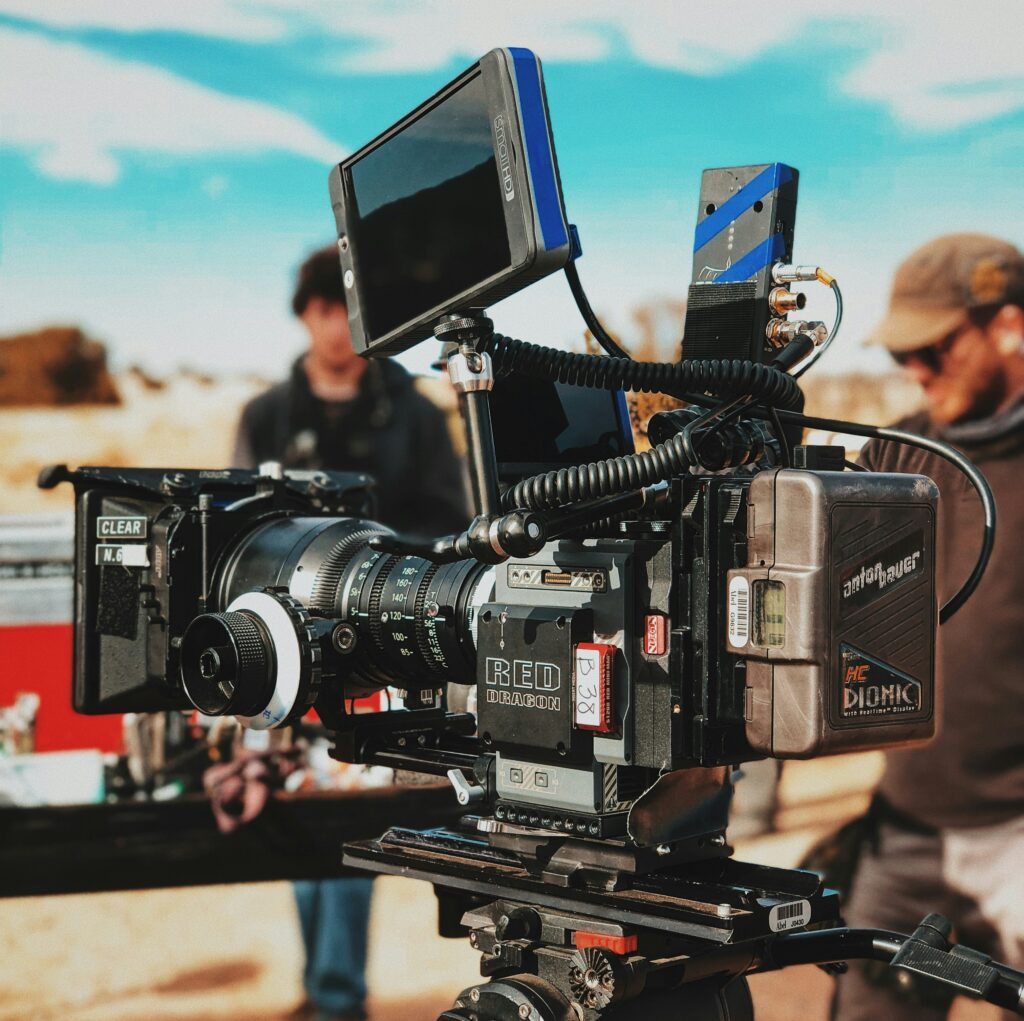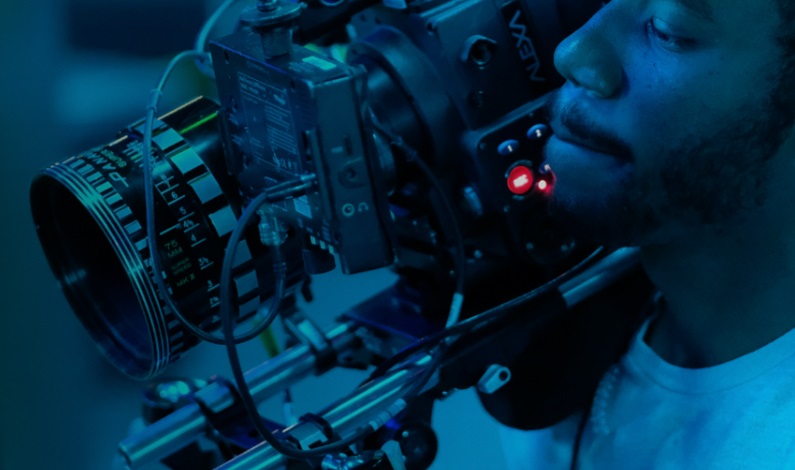American Film Institute Conservatory – Hollywood’s Best-Kept Secret!

The American Film Institute Conservatory (AFI Conservatory) is a prestigious institution dedicated to nurturing the next generation of filmmakers. Known for its rigorous training programs and distinguished alumni, AFI Conservatory offers a comprehensive education in various aspects of filmmaking. This article provides an overview of the conservatory, including its history, location, student and faculty demographics, scholastic requirements, acceptance rate, and tips for applicants.
School History
Founded in 1969, the American Film Institute Conservatory was established to advance the art of film and television production. The conservatory has built a reputation for producing some of the most influential filmmakers in the industry. Key milestones in its history include:
- 1969: The establishment of AFI Conservatory.
- 1973: The creation of the Directing Workshop for Women, emphasizing diversity and inclusion in filmmaking.
- 2003: The opening of the AFI Digital Content Lab to support innovation in digital storytelling.
Location
Situated in the heart of Los Angeles, California, AFI Conservatory benefits from its proximity to Hollywood, the epicenter of the film industry. The campus offers state-of-the-art facilities and a vibrant cultural environment conducive to creative exploration.
- Climate: Los Angeles enjoys a Mediterranean climate, making it an ideal location for year-round outdoor activities and film shoots.
- Nearby Attractions: Students have access to iconic locations such as the Hollywood Walk of Fame, Griffith Observatory, and numerous studios and production companies.
- Transportation: The campus is accessible via public transportation and is close to major highways, facilitating easy commutes.
Student and Faculty Population
AFI Conservatory attracts a diverse and talented student body and faculty, fostering an environment of creativity and collaboration.
- Student Demographics: The conservatory enrolls approximately 140 Fellows (students) annually, representing a wide range of backgrounds and nationalities.
- Faculty Expertise: The faculty comprises industry professionals with extensive experience in various aspects of filmmaking, including directing, producing, screenwriting, cinematography, editing, and production design.
Scholastic Requirements
Admission to AFI Conservatory is highly competitive, with stringent scholastic requirements designed to identify the most promising candidates.
- Application Process: Prospective students must complete an online application form, which includes a personal statement, a resume, and letters of recommendation.
- Portfolio: Applicants are required to submit a portfolio of their work, which may include short films, screenplays, or other relevant projects.
- Interview: Selected candidates may be invited for an interview as part of the admissions process.
- Program-Specific Requirements: Each discipline (Directing, Producing, Screenwriting, Cinematography, Editing, Production Design) has specific prerequisites, such as relevant work experience or academic background.
Acceptance Rate
The American Film Institute Conservatory (AFI Conservatory) is renowned for its selective admissions process. With an acceptance rate of approximately 5-10%, gaining admission to AFI is highly competitive. This selectivity ensures that the conservatory maintains its high standards and produces top-tier graduates who go on to become leaders in the film and television industry.
Requirements
To be considered for admission to AFI Conservatory, applicants must meet several rigorous requirements:
General Requirements
- Application Form: Complete an online application form, which includes personal information, educational background, and program of interest.
- Application Fee: A non-refundable application fee must be submitted along with the application.
Academic and Professional Background
- Educational Qualifications: Applicants should hold a bachelor’s degree or equivalent. However, significant professional experience in the film industry can sometimes compensate for formal education.
- Resume: A detailed resume outlining relevant work experience, educational background, and any film-related projects.
Portfolio Requirements
- Creative Portfolio: Each program requires a specific type of portfolio:
- Directing: A narrative film or video (up to 20 minutes) showcasing the applicant’s directing abilities.
- Producing: A written portfolio including a personal statement, a development proposal, and a film or video project.
- Screenwriting: Three original screenplays (one feature-length and two short scripts) or other writing samples.
- Cinematography: A reel (up to 20 minutes) demonstrating the applicant’s cinematography work.
- Editing: A reel (up to 20 minutes) showcasing editing skills.
- Production Design: A portfolio with examples of design work, including sketches, models, and photographs.
Personal Statement and Recommendations
- Personal Statement: An essay detailing the applicant’s passion for filmmaking, career goals, and reasons for choosing AFI Conservatory.
- Letters of Recommendation: Three letters of recommendation from professionals who can attest to the applicant’s talent, work ethic, and potential in the film industry.
Interview
- Interview: Selected candidates may be invited for an interview as part of the final selection process. The interview assesses the applicant’s suitability for the program and commitment to a career in filmmaking.
Tips for Getting Accepted
Strengthen Your Portfolio
- Showcase Your Best Work: Ensure that your portfolio highlights your strongest projects and demonstrates your unique creative voice.
- Tailor to the Program: Customize your portfolio to align with the specific requirements of the program you are applying for. Focus on showcasing skills relevant to the discipline.
Craft a Compelling Personal Statement
- Be Authentic: Write a personal statement that genuinely reflects your passion for filmmaking and your aspirations.
- Tell a Story: Use storytelling techniques to make your personal statement engaging and memorable.
Gather Strong Recommendations
- Choose Wisely: Select recommenders who know you well and can provide detailed insights into your abilities and potential.
- Provide Context: Brief your recommenders on the program and what you hope to achieve, so they can tailor their letters accordingly.
Gain Relevant Experience
- Work on Film Projects: Participate in as many film projects as possible, whether through internships, freelance work, or collaborations.
- Build a Network: Connect with industry professionals and seek opportunities to work on diverse projects.
Prepare for the Interview
- Research the Program: Understand the specifics of the program and how it aligns with your career goals.
- Practice Interview Skills: Prepare for common interview questions and practice articulating your thoughts clearly and confidently.
Notable Graduates
AFI Conservatory boasts an impressive list of alumni who have made significant contributions to the film and television industry. Here are some notable graduates:
- David Lynch: Renowned director known for films such as “Blue Velvet” and “Mulholland Drive,” and the television series “Twin Peaks.”
- Terrence Malick: Acclaimed director of “The Thin Red Line” and “The Tree of Life.”
- Darren Aronofsky: Director of “Black Swan,” “Requiem for a Dream,” and “The Wrestler.”
- Patty Jenkins: Director of “Wonder Woman” and “Monster.”
- Andrea Arnold: Academy Award-winning director known for “Fish Tank” and “American Honey.”
- Rachel Morrison: Cinematographer for “Black Panther” and “Mudbound,” the first woman nominated for the Academy Award for Best Cinematography.
Applying to the American Film Institute Conservatory is a challenging and competitive process, but with a strong portfolio, compelling personal statement, and thorough preparation, prospective students can improve their chances of acceptance. AFI Conservatory offers unparalleled training and opportunities for aspiring filmmakers, making it a premier choice for those dedicated to advancing their careers in the film industry. For more information, applicants are encouraged to visit the AFI Conservatory website and reach out to the admissions office for guidance.

Programs Offered
AFI Conservatory offers a variety of specialized programs. Below is a detailed table of the programs available:
| Program Name | Time to Complete | Degree or Certification | Additional Info |
|---|---|---|---|
| Directing | 2 years | Master of Fine Arts (MFA) | Focus on visual storytelling, directing techniques, and leadership skills. |
| Producing | 2 years | Master of Fine Arts (MFA) | Emphasis on project development, budgeting, and production management. |
| Screenwriting | 2 years | Master of Fine Arts (MFA) | Training in writing for film and television, story structure, and character development. |
| Cinematography | 2 years | Master of Fine Arts (MFA) | Focus on visual aesthetics, camera techniques, and lighting. |
| Editing | 2 years | Master of Fine Arts (MFA) | Emphasis on narrative pacing, post-production techniques, and software proficiency. |
| Production Design | 2 years | Master of Fine Arts (MFA) | Training in set design, art direction, and visual storytelling through design. |
Student Life
AFI Conservatory provides a dynamic and supportive environment for students:
- Workshops and Seminars: Regular workshops and seminars with industry professionals offer insights into various aspects of filmmaking.
- Collaborative Projects: Students collaborate on numerous projects, gaining hands-on experience and building a network of peers.
- Networking Opportunities: Frequent industry events, screenings, and festivals provide opportunities for students to connect with professionals and showcase their work.
Other Points of Interest
Career Services
- Job Placement: AFI Conservatory offers robust career services, including job placement assistance, internships, and networking opportunities.
- Alumni Network: The conservatory boasts a strong alumni network, with many graduates working in prominent positions in the film and television industry.
Financial Aid
- Types of Aid: Financial aid options include scholarships, grants, and loans.
- Application Process: Students are encouraged to complete the Free Application for Federal Student Aid (FAFSA) and explore other funding opportunities available through AFI Conservatory.
Conclusion
The American Film Institute Conservatory is a premier institution dedicated to training the next generation of filmmakers. With its rigorous programs, distinguished faculty, and strong industry connections, AFI Conservatory provides a unique and invaluable educational experience for aspiring filmmakers. Prospective students are encouraged to visit the AFI Conservatory website and reach out to the admissions office for more information.
Search
Use coupon code THURSDAY for 6% off orders of $100+ at BiggerBooks.com
Get EXCLUSIVE DISCOUNTS on flights from StudentUniverse:
 Monica developed the SMART method of applying for scholarships to help her son. This resulted in his winning over $100,000 and graduating from college 100% debt-free.
Monica developed the SMART method of applying for scholarships to help her son. This resulted in his winning over $100,000 and graduating from college 100% debt-free.
>>Learn more about her method!<<
Leave a Reply